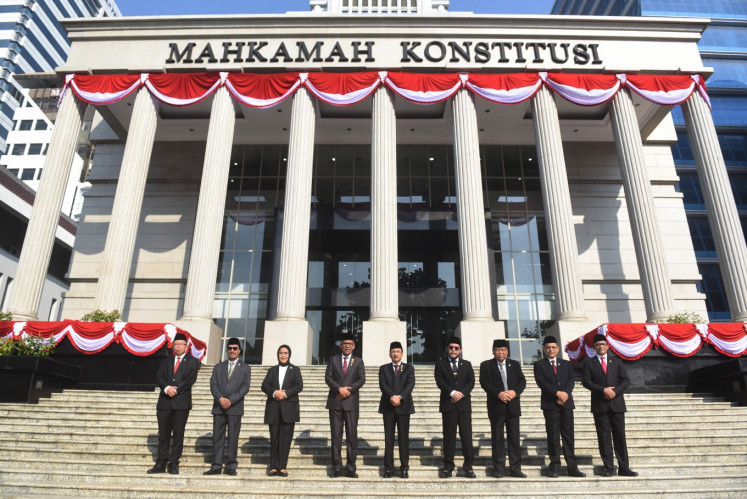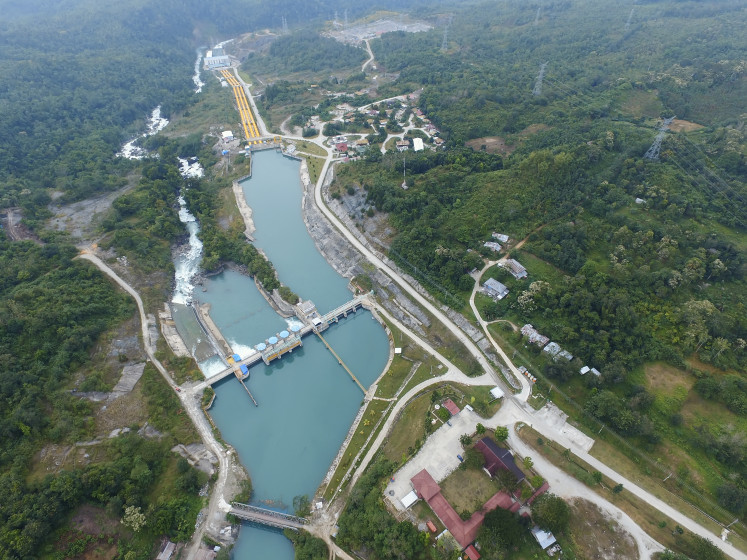Popular Reads
Top Results
Can't find what you're looking for?
View all search resultsPopular Reads
Top Results
Can't find what you're looking for?
View all search resultsEditorial: Unifying palm oil certification
The agreement signed by the Roundtable on Sustainable Palm Oil (RSPO) and the Indonesian Sustainable Palm Oil (ISPO) earlier this month is strategic for promoting sustainable palm oil because their cooperation is designed to eventually unify the certification of sustainable palm oil, thereby removing confusion, economizing physical resources and reducing costs
Change text size
Gift Premium Articles
to Anyone

T
he agreement signed by the Roundtable on Sustainable Palm Oil (RSPO) and the Indonesian Sustainable Palm Oil (ISPO) earlier this month is strategic for promoting sustainable palm oil because their cooperation is designed to eventually unify the certification of sustainable palm oil, thereby removing confusion, economizing physical resources and reducing costs.
The current system whereby RSPO runs its own certification scheme on a voluntary basis and ISPO implements a similar program, but on a mandatory basis, is not healthy not only because of the unnecessarily high costs. The duplicate certification also confuses the market, yet contributes little to enhancing sustainable palm oil.
True, given Indonesia's notorious reputation for weak law enforcement and rampant corruption, ISPO cannot gain credibility from the international market because it does not engage private-sector stakeholders such as environmental NGOs or consumer and industrial organizations.
On the other hand, RSPO, despite its advantage of being a multi-stakeholder forum involving multinational companies and NGOs, would not be able to significantly improve policies for sustainable palm oil without the involvement of the Indonesian government.
The two different schemes make things difficult for palm oil growers ' smallholders and plantation companies ' in Indonesia. They have to get certification under ISPO if they don't want to break the law. But they need RSPO certification as a green label to enter the markets in the developed countries, notably in Europe and the United States.
We should, therefore, commend the United Nations Development Program and several multinational companies, which together brokered and initiated cooperation between RSPO and ISPO to eventually develop combined/parallel audit for their respective standards to reduce financial costs on growers and processors.
Certainly it is too much to expect such parallel audit to materialize soon. But the dialogues and discussions under the cooperation between the two forums (hopefully Malaysia would also join) would be much more productive than their current rivalry.
Indonesia and Malaysia together account for more than 85 percent of global palm oil output.
Of most importance, as RSPO secretary-general Darrel Webber noted, is maintaining the robustness and rigor of the audit process to ensure that certified palm oil is really socially, environmentally and economically sustainable.
There is an urgent need to strengthen the capacity of smallholders, who account for 40 percent of oil palm estates in Indonesia, focusing on good agriculture practices and environment protection.
Under the current RSPO scheme, the sheer cost, documentation and legality requirements make it difficult for smallholders to even contemplate getting their smallholdings certified given the low premium price gained.









